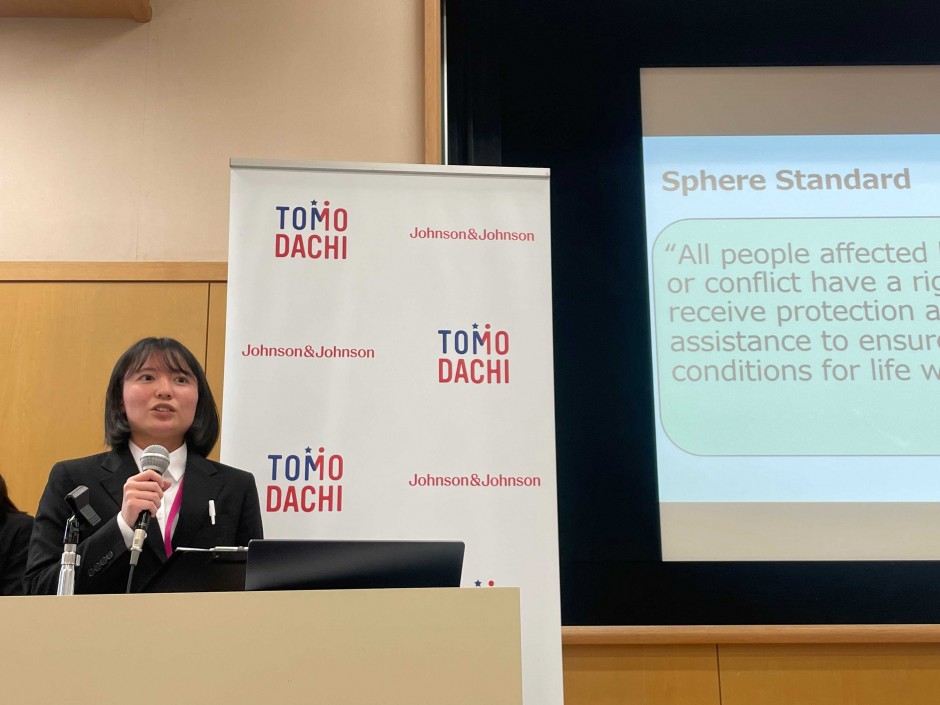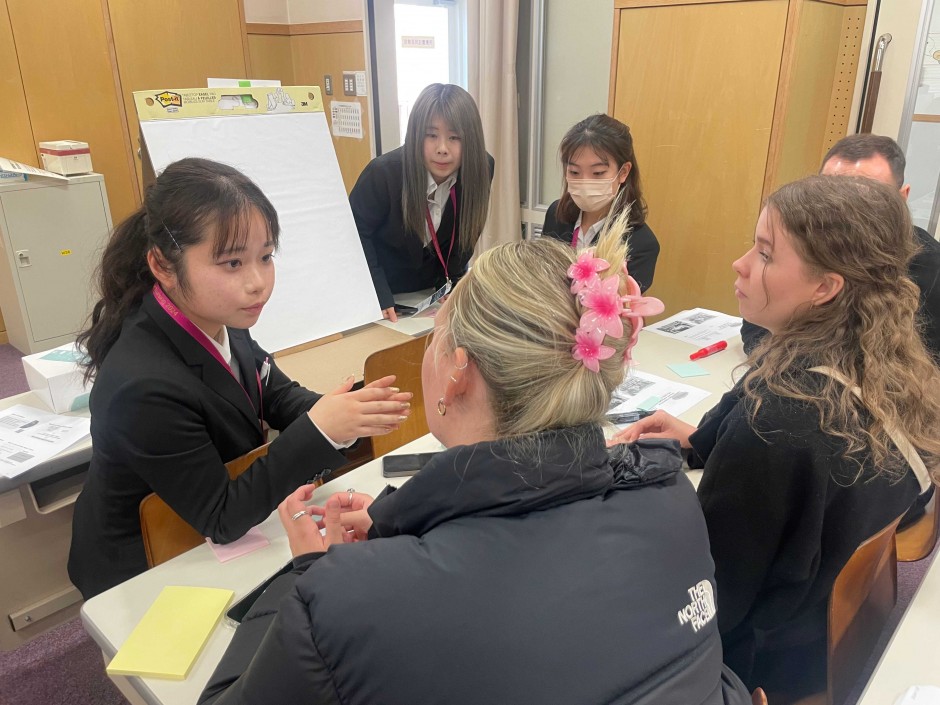Post Trip Project and Final Presentation for TOMODACHI J&J Disaster Nursing Training Program 2024

TOMODACHI J&J Disaster Nursing Training Program 2024 post trip project was held in Kobe City, Hyogo Prefecture, on November 30 and December 1, 2024. This post trip project was conducted as a student exchange session during the 8th World Society of Disaster Nursing International Academic Conference at Kobe City College of Nursing, planned and managed by 10 ninth-term nursing student participants from across Japan.
One of the key learnings from their pre-trip seminars and US trip was the importance of supporting mental health to help people live authentically during disasters. Based on this, the students set the theme of the student exchange session as “Mental Health Care for Disaster Survivors in Shelters and Evacuation Centers.”
The students prepared for the session from September to November. On the session day, 36 participants from five countries—Australia, Germany, Japan, Malaysia, and Taiwan—engaged in lively discussions from various perspectives. The participants explored the characteristics of shelters and support systems during disasters in different countries. Through this, the students identified two key insights. First, in Japan, shelters tend to be operated for longer periods with support from various organizations. In contrast, other countries often see disaster survivors receiving help from relatives and starting new lives away from their original homes. The students reflected that this may be a reflection of cultural tendency in Japan for people to prefer staying in familiar places. Second, the balance between physical and mental care varies depending on cultural and religious factors, as do the roles of professionals involved in providing such care.

On December 15th, the program’s final reporting session was held online with 49 participants. During this event, the ninth-term students shared their learnings from the program. Discussions also touched on the program’s long-lasting impact on disaster nursing from multiple perspectives, including those of the program’s advisor and mentors, program alumni and professor. Having completed this approximately six-month program, participants are now expected to lead advancements in the field of disaster nursing over the long term.


